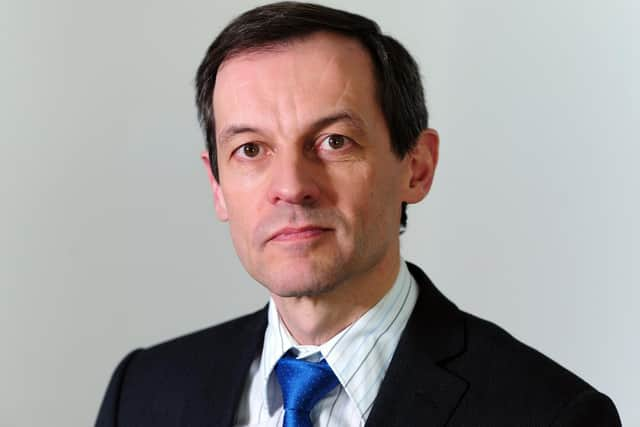Spiralling Leeds patient waiting times due to Covid-19 is a 'concern for clinicians', saying leading city GP
and live on Freeview channel 276
Richard Vautrey, Chair of the British Medical Association's (BMA) General Practitioners Committee, spoke as the knock-on effect on health services in Leeds has been laid bare in new documents from city health chiefs.
According to a draft of NHS Leeds Clinical Commissioning Group (CCG)’s annual report, the number of patients waiting more than 52 weeks for treatment rose from 22 to more than 2,700 in just over a year.
Advertisement
Hide AdAdvertisement
Hide AdHealth chiefs in the city added that this number could increase further, while around one third of patients were waiting more than two weeks for urgent cancer appointments following a referral.


Dr Vautrey told the YEP: "This is a sign of the massive impact the pandemic has had on the wider NHS.
"Staff at GP surgeries and hospitals have prioritised the huge number of patients coping with Covid-19.
"This has clearly left a number of other patients in this situation.
"It concerns clinicians at much as patients.
Advertisement
Hide AdAdvertisement
Hide Ad"We want to provide the best possible service to our patients and it is really frustrating to see these sort of delays."
The report stated that, before the Covid-19 pandemic, the NHS in Leeds had made “positive steps” to improve the speed of access to treatment and to the quality of its healthcare, listing better treatment times and shorter treatment waiting lists.
However, it added: “Following the declaration of a serious level four incident on January 30, 2020, due to the emergence of the Covid-19 pandemic and the consequential response, many areas of performance were adversely, significantly affected at the beginning of 2020-21 due to the requirement to follow national instruction including the suspension of many routine services (unless where clinically appropriate/high risk), either to focus clinical resources in managing patients with Covid-19 or to support patient and staff safety.”
The NHS began to restart non-Covid urgent services from April 2020, while further national requirements were outlined the following August to help services return to “near-normal levels” of non-Covid health services, and to prepare for winter demand pressures.
Advertisement
Hide AdAdvertisement
Hide AdWhile the document claims improvements have been made in performance measures from summer 2020, services still faced “significant challenges and risks”.
It added: “For example, there were 22 Leeds CCG patients waiting more than 52 weeks for treatment in March 2020 yet in January 2021 this number had increased to 2,778 and we expect this number to increase further.
“Prior to March 2020 less than one percent of Leeds patients would typically wait longer than six weeks for diagnostic tests, but now almost one third of patients do.”
While the national target of at least 93 per cent of patients being seen within two weeks of referral for an urgent cancer appointment with a specialist was being met in March last year, around one third of patients are now having to wait longer than two weeks for their appointment.
Advertisement
Hide AdAdvertisement
Hide AdIn responding to the pandemic, the document claims more than 50 per cent of NHS pharmacy staff were now involved in the vaccination rollout.
It added vaccine uptake in the city was “significantly higher in less deprived communities and less diverse communities” and that work was being done to help make sure vaccination coverage is inclusive.
The document stated: ” So, for example, pop up and mobile vaccination clinics have been established in community sites at the heart of communities; trusted champions from the NHS, communities of interest and faith groups are helping address concerns and vaccine hesitancy.”
CCGs are groups of locally-based doctors which help organise the the delivery of most NHS services in a given area. The Leeds CCG is made up of 94 GP practices.
The document will be discussed at Leeds City Council’s Health and Wellbeing Board on Thursday, April 29.